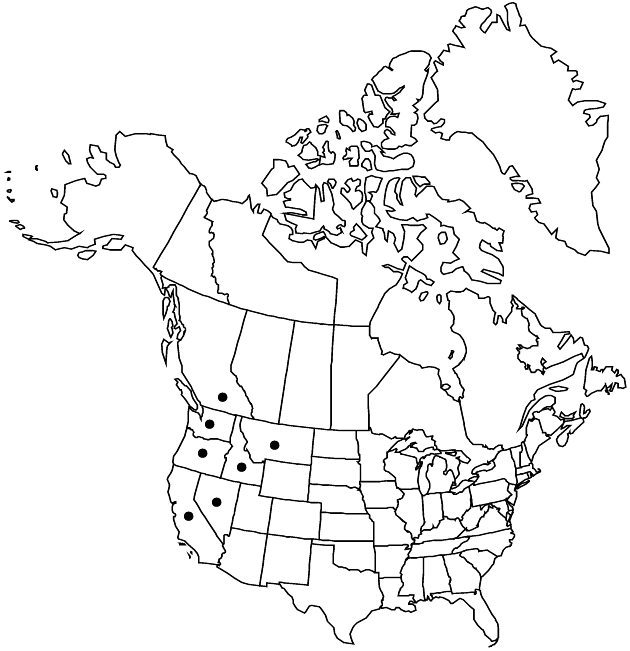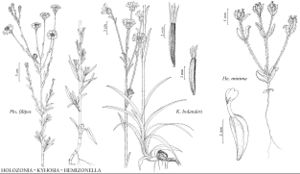Difference between revisions of "Hemizonella minima"
Proc. Amer. Acad. Arts 9: 189. 1874.
IllustratedEndemic
Basionym: Hemizonia minima A. Gray Proc. Amer. Acad. Arts 6: 548. 1865
Synonyms: Madia minima (A. Gray) D. D. Keck
imported>Volume Importer |
imported>Volume Importer |
||
| Line 63: | Line 63: | ||
|publication year=1874 | |publication year=1874 | ||
|special status=Illustrated;Endemic | |special status=Illustrated;Endemic | ||
| − | |source xml=https:// | + | |source xml=https://bitbucket.org/aafc-mbb/fna-data-curation/src/2e0870ddd59836b60bcf96646a41e87ea5a5943a/coarse_grained_fna_xml/V19-20-21/V21_726.xml |
|tribe=Asteraceae tribe Heliantheae | |tribe=Asteraceae tribe Heliantheae | ||
|subtribe=Asteraceae (tribe Heliantheae) subtribe Madiinae | |subtribe=Asteraceae (tribe Heliantheae) subtribe Madiinae | ||
Latest revision as of 20:14, 5 November 2020
Leaf blades 5–25 × (0.5–)1–3 mm. Involucres (1–)2–4 × (1–)2–4 mm. Disc corollas 1–2.5 mm. Ray cypselae 1.8–2.8 mm; disc cypselae 1.8–2.8 mm. 2n = 42–44.
Phenology: Flowering Apr–Aug.
Habitat: Gravelly or rocky, usually open sites, scrublands, meadows, forests
Elevation: 300–2900 m
Distribution

B.C., Calif., Idaho, Mont., Nev., Oreg., Wash.
Discussion
Hemizonella minima is self-compatible, like most other tarweeds that are distributed widely in western North America. Taylor 8147 (JEPS), from the Sierra Nevada (Tioga Peak, Mono County, California), is an unusually late-flowering (15 Sep 1982) and high-elevation (2900 m) collection.
Selected References
None.
Lower Taxa
None.
